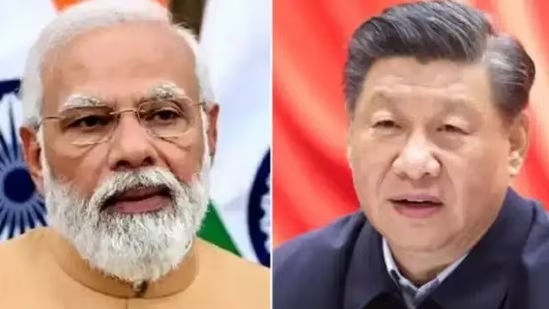As anticipation builds for the upcoming G20 summit, where leaders from the world's largest economies will converge to discuss global issues, a shadow of controversy looms over Chinese President Xi Jinping's visit to India. The contentious issue at the forefront is the ongoing map controversy, which has strained diplomatic relations and added a layer of complexity to the upcoming summit.
The map controversy revolves around territorial disputes and the way different nations depict their borders on maps. For years, various countries, including India, have raised objections to China's depiction of its territorial claims, particularly in regions like Taiwan, Tibet, and the South China Sea. These disputes have resulted in tension and friction between China and its neighboring countries.
In the context of Xi Jinping's India visit for the G20 summit, the map controversy takes on added significance. The Indian government has expressed concerns over China's depiction of its borders, particularly in the regions of Aksai Chin and Arunachal Pradesh. These are areas where both India and China have competing territorial claims, and the depiction of these regions on official Chinese maps has been a longstanding point of contention.
The controversy has not only strained bilateral relations but has also raised questions about the broader implications for regional stability and international cooperation. With the G20 summit aimed at addressing global economic challenges, the focus should ideally be on collaboration and dialogue. However, the map controversy threatens to divert attention away from critical issues like climate change, trade, and economic recovery.
Efforts to resolve the map dispute have been met with limited success. Both India and China have engaged in diplomatic talks over the years, but a lasting resolution has proven elusive. The issue has become deeply intertwined with historical, political, and nationalistic sentiments on both sides, making compromise difficult.
As Xi Jinping prepares to attend the G20 summit in India, there is hope that the leaders of these two nations can find common ground and address the map controversy constructively. The world is watching closely, as the outcome could set a precedent for resolving similar disputes and for fostering an environment of cooperation among nations with differing territorial claims.
In conclusion, the map controversy surrounding China's territorial claims has cast a shadow over Xi Jinping's upcoming visit to India for the G20 summit. While economic and global issues are the primary focus of the summit, the unresolved map dispute threatens to overshadow these discussions. It remains to be seen whether diplomatic efforts will yield progress in resolving the territorial disagreements and whether the G20 summit can serve as a platform to address these tensions effectively.

Comments
Post a Comment